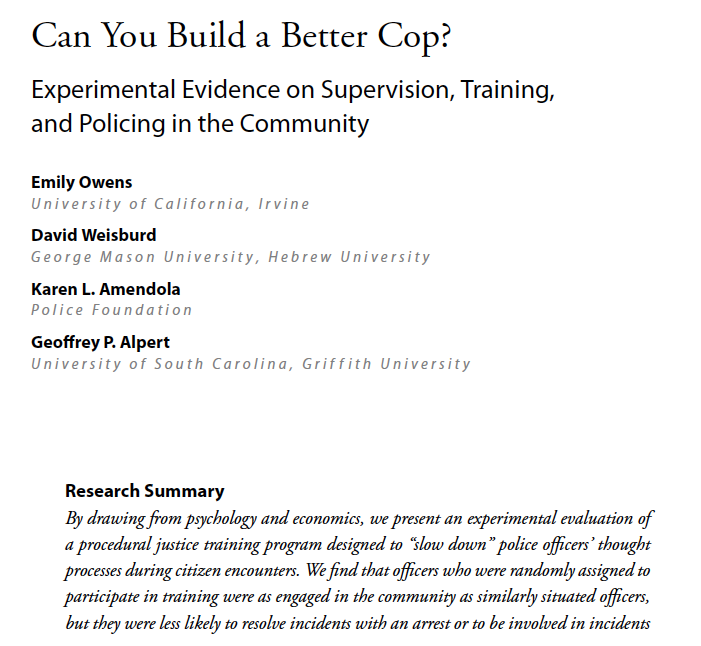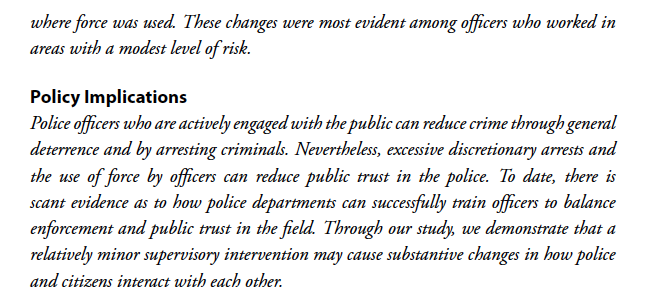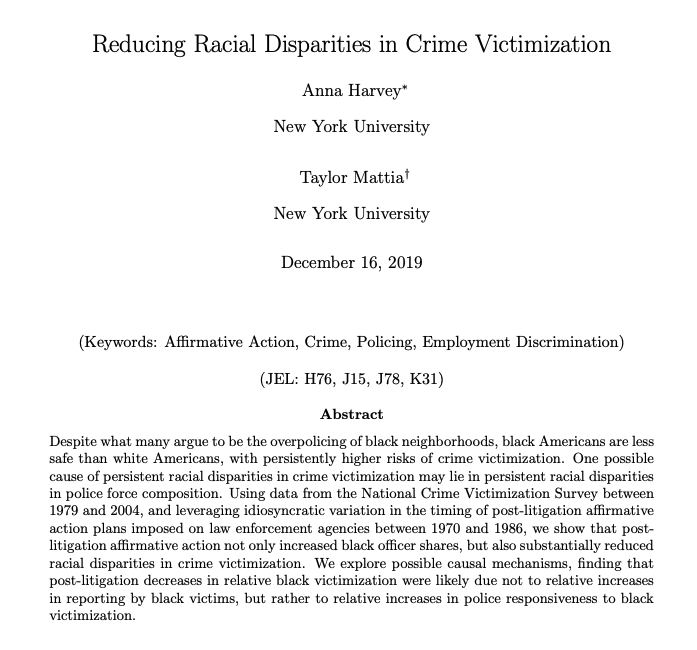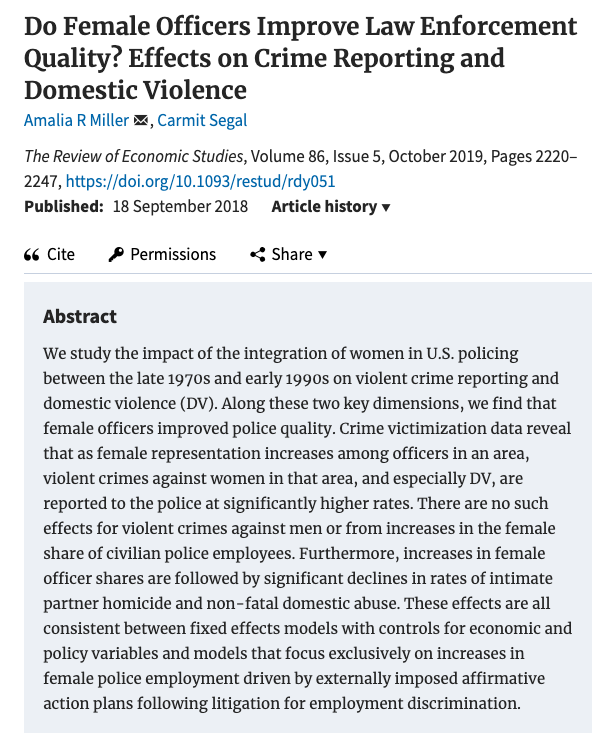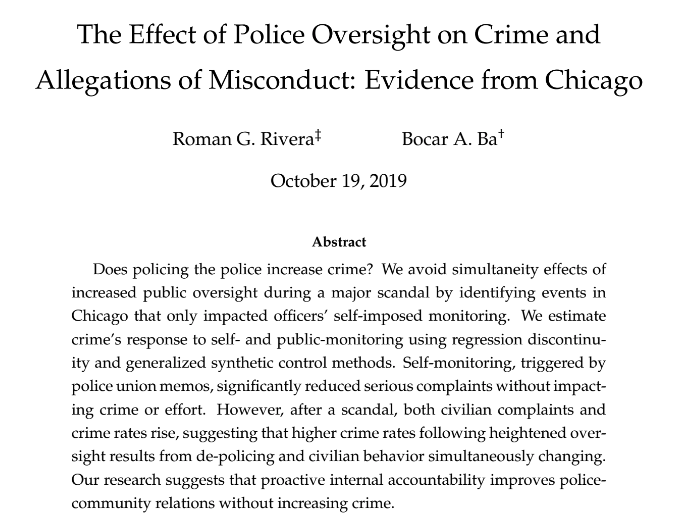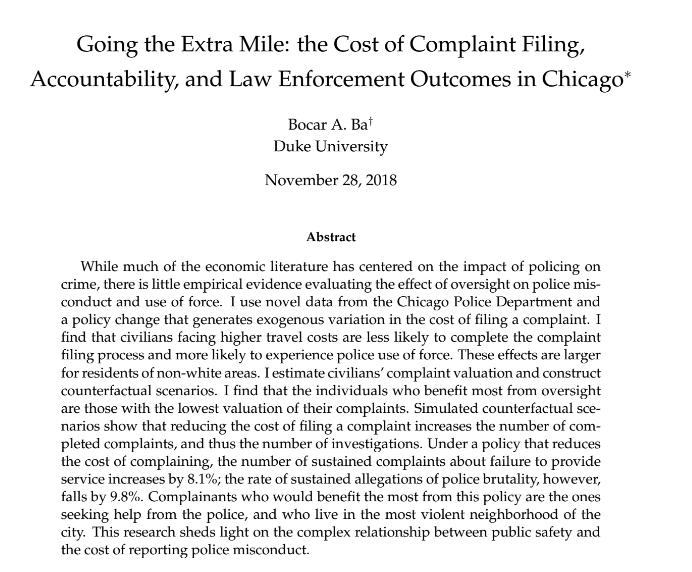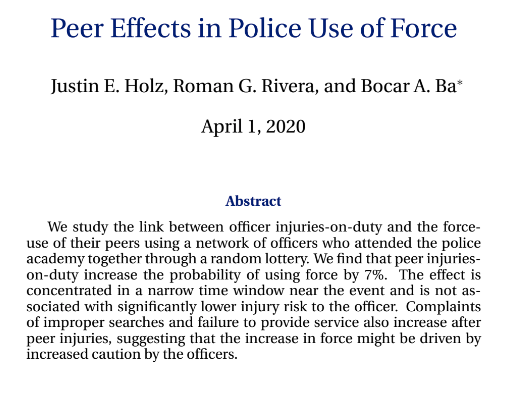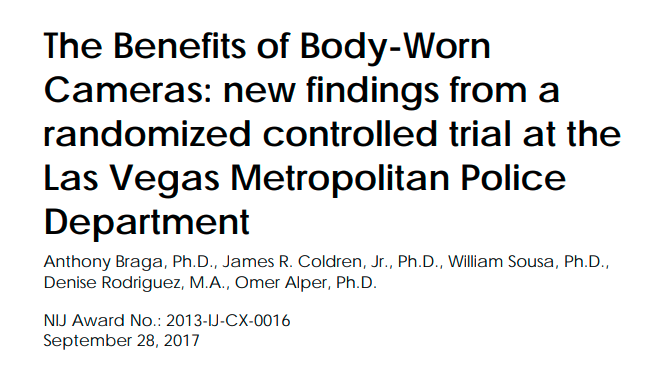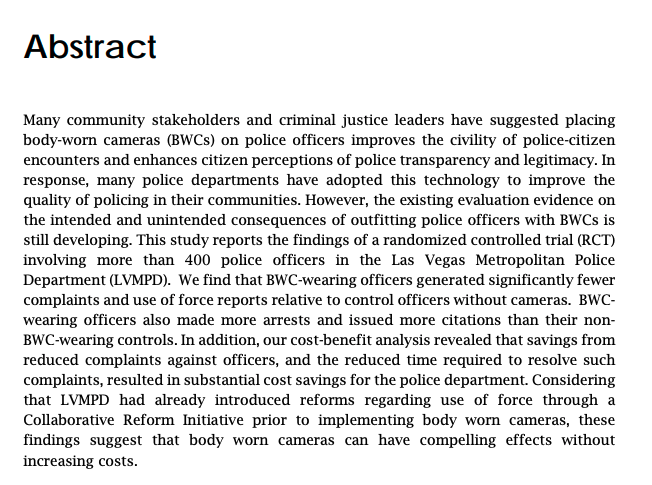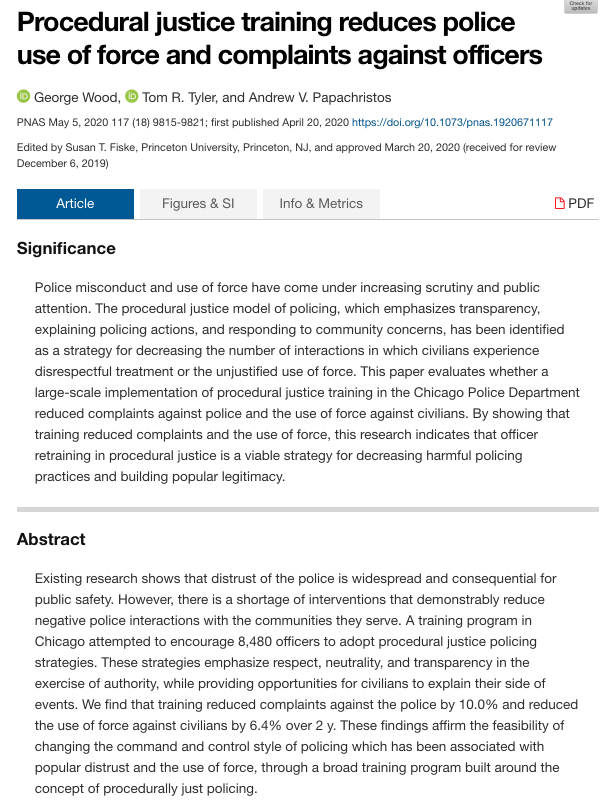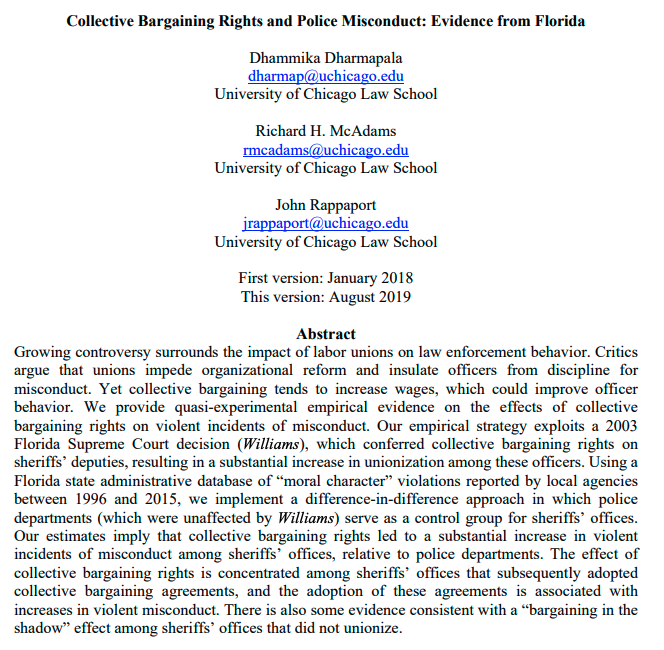As a researcher, I now take as given that unnecessary escalation of incidents (e.g. to arrests/violence), as well as racial bias, are both (related) problems in policing. The question is how to *solve* these problems. 1/n
I have ideas. You have ideas. We all have ideas. 2/n
But we need to recognize that even our best ideas about how to solve the problems in policing are untested hypotheses. We need to start testing! (And we need to be ready to be proven wrong. Really good ideas often don’t work in practice.) 3/n
By testing, I mean in the field, using *actual behavior* as outcome measures. I don’t care what people said on a survey at the end of some training module. I want to know what they do when they’re back out on the job. 4/n
Yes, this is hard, and will take a lot of work. You thought that finding solutions to complex, long-standing societal problems would be easy? 5/n
Here are some studies that measure the *causal effects* of interventions/policies on arrests, use of force, and/or race/gender bias. I hope they inspire you to test your own ideas! 6/n
This study implements a CBT-like program in the spirit of procedural justice, w the Seattle PD. It& #39;s an RCT, but the sample is small & implementation logistics made analysis tricky. Results are promising. I& #39;d love to see it replicated w a bigger sample!
https://doi.org/10.1111/1745-9133.12337">https://doi.org/10.1111/1...
https://doi.org/10.1111/1745-9133.12337">https://doi.org/10.1111/1...
This study considers the effects of court-ordered affirmative action to increase racial diversity in police departments. It finds benefits.
https://s18798.pcdn.co/annaharvey/wp-content/uploads/sites/6417/2019/12/Victimization_Harvey_Mattia.pdf">https://s18798.pcdn.co/annaharve...
https://s18798.pcdn.co/annaharvey/wp-content/uploads/sites/6417/2019/12/Victimization_Harvey_Mattia.pdf">https://s18798.pcdn.co/annaharve...
This study considers the effects of court-ordered affirmative action to increase gender diversity in police departments. It finds benefits.
https://doi.org/10.1093/restud/rdy051">https://doi.org/10.1093/r...
https://doi.org/10.1093/restud/rdy051">https://doi.org/10.1093/r...
This study considers changes in who is monitoring police behavior (internal vs. external monitoring after a scandal). It finds that internal/self-monitoring works better.
https://www.dropbox.com/s/4ar67esosdcuiuu/Rivera%20and%20Ba%20%282019%29.pdf?dl=0">https://www.dropbox.com/s/4ar67es...
https://www.dropbox.com/s/4ar67esosdcuiuu/Rivera%20and%20Ba%20%282019%29.pdf?dl=0">https://www.dropbox.com/s/4ar67es...
This study considers a policy change that increased the cost of filing civilian complaints against police officers in Chicago. It finds detrimental effects.
https://www.dropbox.com/s/rado79zmhynkb89/final_BBa_2018.pdf?dl=0">https://www.dropbox.com/s/rado79z...
https://www.dropbox.com/s/rado79zmhynkb89/final_BBa_2018.pdf?dl=0">https://www.dropbox.com/s/rado79z...
This study considers peer effects w/in police departments. It finds that knowing someone who was recently injured increases your own use of force, apparently bc you are more fearful. This suggests that more trauma counseling for cops could be helpful!
https://www.dropbox.com/s/qfkk4dzou3hjngc/Holz%20and%20al%20%282020%29.pdf?dl=0">https://www.dropbox.com/s/qfkk4dz...
https://www.dropbox.com/s/qfkk4dzou3hjngc/Holz%20and%20al%20%282020%29.pdf?dl=0">https://www.dropbox.com/s/qfkk4dz...
There have been a number of RCTs of the effects of body-worn cameras on police behavior. Results are mixed, and we should not consider this tool a silver bullet. Here is a research summary that I wrote for Brookings in 2017: https://www.brookings.edu/blog/up-front/2017/10/25/do-body-worn-cameras-improve-police-behavior/">https://www.brookings.edu/blog/up-f...
There has since been another BWC RCT in Las Vegas -- it appears to find beneficial effects, though I have not read this one closely (yet).
https://www.ncjrs.gov/pdffiles1/nij/grants/251416.pdf">https://www.ncjrs.gov/pdffiles1...
https://www.ncjrs.gov/pdffiles1/nij/grants/251416.pdf">https://www.ncjrs.gov/pdffiles1...
This study measures the effects of a procedural justice training program for police officers in Chicago. It finds benefits.
https://www.pnas.org/content/117/18/9815.full">https://www.pnas.org/content/1...
https://www.pnas.org/content/117/18/9815.full">https://www.pnas.org/content/1...
This study considers a court decision that gave collective bargaining rights to sheriffs& #39; deputies in Florida in 2003. It finds detrimental effects.
https://papers.ssrn.com/sol3/papers.cfm?abstract_id=3095217">https://papers.ssrn.com/sol3/pape...
https://papers.ssrn.com/sol3/papers.cfm?abstract_id=3095217">https://papers.ssrn.com/sol3/pape...

 Read on Twitter
Read on Twitter